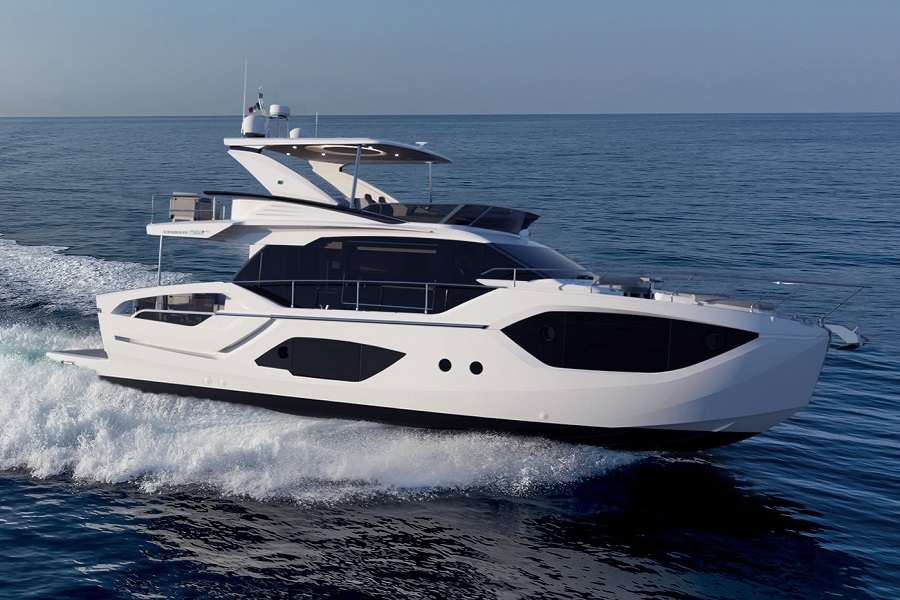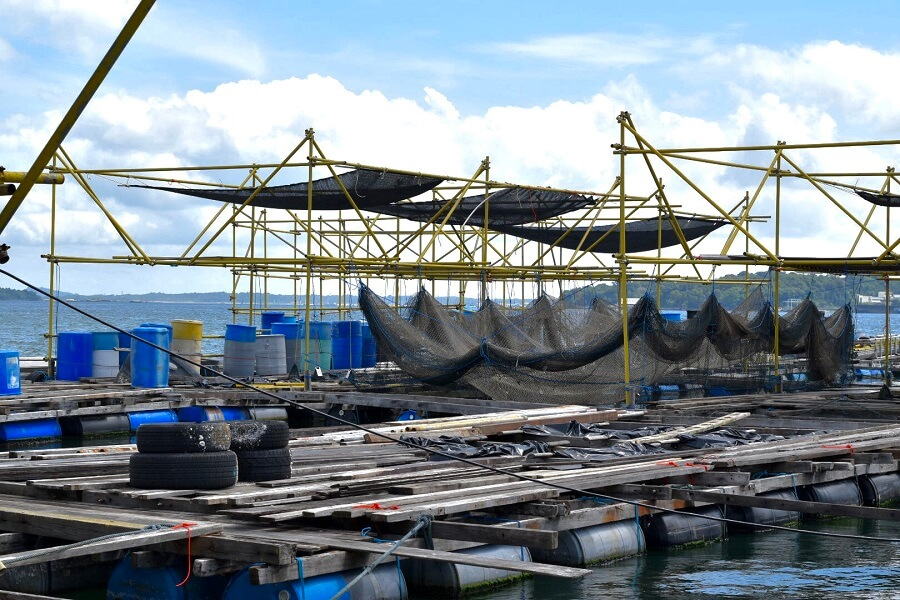 alt="Absolute signatures feature on 52 Fly"/>
alt="Absolute signatures feature on 52 Fly"/>
 alt="Ocean Purpose Project: From purpose to project"/>
alt="Ocean Purpose Project: From purpose to project"/>
I’m floating in a small patch of ocean between Malaysia and Singapore, and all is quiet except for the sound of water lapping against the side of the boat. Uncle Heng’s kelong (offshore fish farm) lies a distance away from me, backlit by the early morning sunlight.
When I look down, however, a less beautiful sight greets me: fragments of Styrofoam, bottle caps and bits of plastic packaging float in clusters, bobbing here and there with the waves. This comes as no surprise. I’ve grown up seeing rubbish on the shores of Pasir Ris, the beachfront neighbourhood I’ve lived in my whole life. Plastic has always been here, and it has always been a problem.

Rubbish gathers on the coast at Paris Ris
Globally, it has been found that about 8 million tonnes of plastic waste flows into the oceans every year, making up about 60-95 per cent of water pollutants. Plastic pollution is the most widespread problem affecting the marine environment today, as many marine animals die from ingesting or getting entangled in plastic debris. It also threatens food safety, human health and coastal tourism, and contributes greatly to climate change.
I’ve experienced the devastating impacts of ocean pollution first-hand after one fateful dragon boat race in the Philippines in 2015. While paddling in the idyllic waters surrounding Boracay’s pristine white beaches, it was impossible to tell it was polluted with untreated wastewater from the sewage pipes of hotels and restaurants.
This triggered an intense autoimmune response in my body, which left me severely sick after the trip. My hair and skin turned white, and I had problems speaking and walking. I was shocked.

In 2015, D’silva fell ill after swimming in Boracay in sea contaminated by raw sewage
Until then, I’d depended on my voice as a former Singapore Idol contestant and fast-talking community manager in the media industry. Was my life about to be totally derailed because of just three days of exposure to polluted water?
More importantly, I couldn’t understand the reason behind the pollution itself. How could anyone allow sewage pipes to run directly into beaches that account for 20 per cent of the Philippines’ tourism industry?
This sickness afflicted me after just one weekend, so what about my Filipino friends who work as lifeguards and dive instructors, or the children who play in the waters every day? What health problems are lurking round the corner, waiting to strike?

A beach clean-up with Ocean Purpose Project
There’s no cure to the autoimmune issues I have; they will inevitably get worse and worse. And my days of paddling are over. But I kept asking myself: Could there be another purpose arising from all this? Could I rethink what I know about myself? Could I start doing something today to save tomorrow’s child?
This is why I started the Ocean Purpose Project. I love sitting in rooms with PHDs and ‘industry experts’ who question why a former Singapore Idol finalist is working on converting plastic to fuel. One asked me repeatedly: “Who do you think you are?” The doubters and belittlers are fantastic motivation for me. After all, I am a rebel at heart.
In the last year, Ocean Purpose Project has achieved the near impossible. We have brought together the best-in-class industry and research partners to create the world’s first Plastic to Fuel (PTF) unit that can remove tonnes of waste plastic pollution at a profit, even if oil drops to $0.

A Plastic To Fuel (PTF) unit by Ocean Purpose Project
Each unit can convert one tonne of plastic a day into pyrolyzed oil, carbon black and carbon nanotubes, which is the stuff inside your smartphones and computers. We aim to deploy the PTF units to landfills, polluted coastal communities, eco-resorts, vessels and numerous other locations to help clean up plastic waste.
Beyond transforming trash into treasure, Ocean Purpose Project is working to create a single-use plastic alternative from seaweed and mussels, which we grow in partnership with the kelong uncles and aunties of Pasir Ris.
These seaweed and mussel lines will also act as natural biofilters that help improve water quality and prevent algal blooms, a huge economic pain point for the kelongs because it wipes out fish stocks in an instant.

‘Uncle Heng’ holding a mussel line that acts as a natural biofilter
We complement these projects with educational programmes, where we galvanise the community to take action and ownership over their coastal environments through organising monthly beach clean-ups at Pasir Ris Beach.
On a broader level, however, Ocean Purpose Project goes beyond just converting plastic to fuel, creating bioplastics or organising beach clean-ups. It’s the purpose I’ve found to emerge from the lowest point in my life and it drives me to wake up every day to do what needs to be done for a cleaner, healthier and brighter tomorrow.
Sustainability as we know it needs to be disrupted. It’s not just the domain of tree-huggers or corporates trying to make themselves look good on the ESG spreadsheet. It’s about creating a Blue Ocean of possibility, rewriting what ‘business as usual’ is all about. Ocean Purpose Project’s goal is to bring about disruptive change in the way we manage the problems of marine pollution through test-bedding innovative projects.

Seaweed plastic (left) and normal plastic (right)
Everyone can find their own ways to connect with the environment, whether you’re a musician, a diver or an engineer, so don’t be afraid to just go out and try your own ideas. Organise your own beach clean-up, do the research, start your own movement. When people come together, great things can happen.
I’m proof that you don’t need an Environmental Science degree or years of experience in sustainability to change the way we live. Now is the time to ‘Start Today to Save Tomorrow’.

Although now a professional environmentalist, D’silva wears many hats. In her career and personal life, she has been a singer, actress, TV producer, radio DJ, social media manager and athlete. Today she is the Chief Purpose Officer of the Ocean Purpose Project, driving change in the sustainability sector, beginning with the ocean in her backyard of Pasir Ris, Singapore.